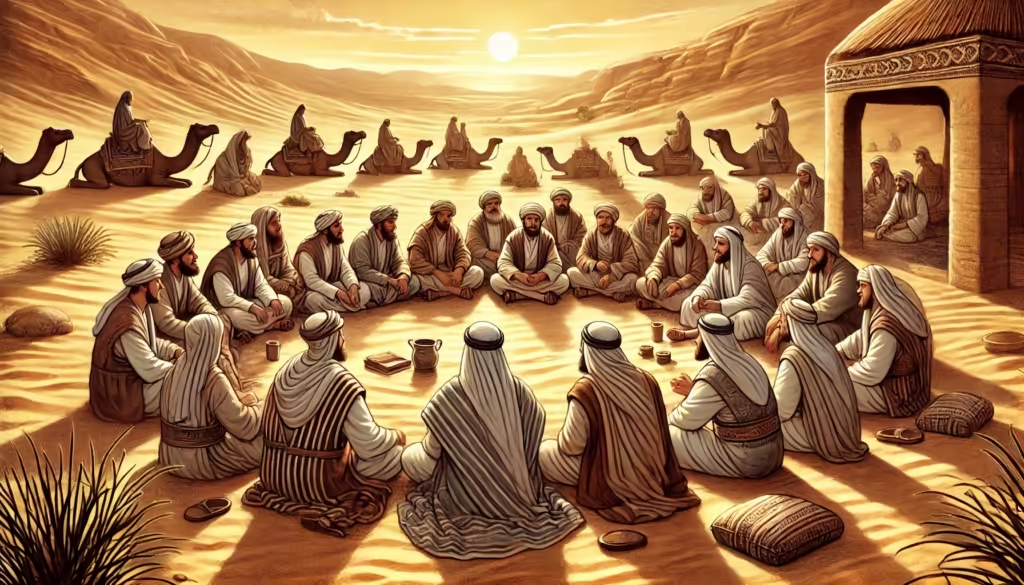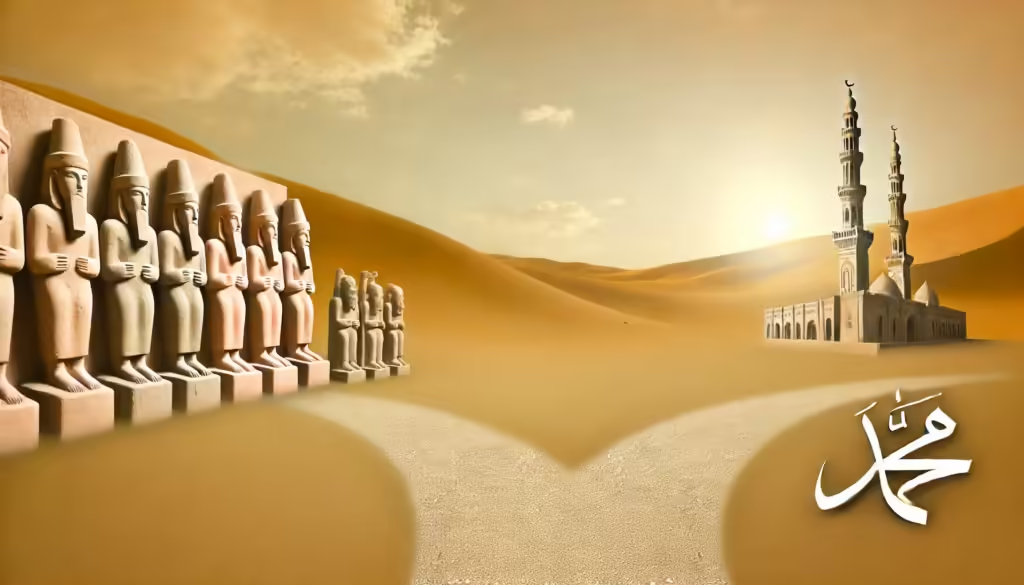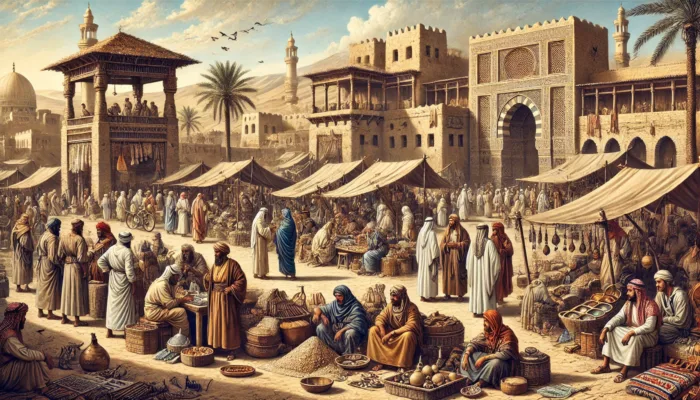Table of Contents
Introduction
Our modern culture often misunderstands the nature of Quraysh society. The Quraysh community was secular and embraced a mix of religious beliefs and ideas. They worshipped 360 idols around the Kaaba, and adding a 361st would not have been an issue. Each tribe had its own idol, every household kept one, and travelers would even bring idols on their journeys. Additionally, there were monotheists among them who refrained from idol worship, which the society accepted without issue.
The Open and Diverse Nature of Quraysh Society
Quraysh society was remarkably open-minded, culturally diverse, and secular in ways we might consider modern. Individuals held unique opinions, some formed groups, and others established associations or alliances. The society was prepared to embrace this diversity. Such openness reflects the remarkable character, strength, and independence of the early generations, as our scholars have often highlighted.

It is remarkable that three of the earliest individuals to embrace Islam willingly chose the companionship of the Prophet Muhammad (Peace be upon Him). The well-known account of Khadijah, the Prophet’s wife, tells us that She herself sought marriage with Him. Abu Bakr, a respected merchant well-versed in the affairs of Quraysh society, chose the Prophet as His closest companion above anyone else. Similarly, when Zaid ibn Harithah’s father came to reclaim him from slavery, Zaid chose to stay with the Prophet Muhammad (Peace be upon Him). These individuals were deeply independent and determined, each making the bold decision to stand apart from the norms of Quraysh society.
The Turning Point: Quraysh’s Response to a New Message
During the public phase of the Prophet’s message, what caused Quraysh society to turn against him? The Prophet Muhammad (Peace be upon Him) introduced a profound new belief by declaring, “There is no deity but ALLAH“. They realized that this was not simply another idol to add to the 360 already present. The statement “There is no deity but ALLAH” hit Quraysh society much like the phrase “The people want the fall of the regime” might resonate with today’s rulers. They recognized that this was not just a new idea or group to incorporate but a completely new system.
Thus, a society known for its pluralism, cultural diversity, and secular values began to push back to suppress this “new revolution”. They stirred social tension and disrupted the previously peaceful social fabric, fearing the transformative impact that the Prophet’s message could have on Quraysh society.
The Reaction of Quraysh Society in Modern Terms
If the spokesperson of Quraysh society were to speak in today’s terms, he might say: “We are an open, pluralistic, secular society. Let those who wish to worship idols do so, and those who do not, refrain. Let those who want to drink alcohol enjoy it, and those who don’t, we won’t force anyone”. Then came Muhammad (Peace be upon Him), challenging this diverse society to worship one God alone.
They opposed Him under the banner of “fighting exclusion, resisting coercion, and upholding the values of democracy and pluralism”. Such was our Prophet Muhammad (Peace be upon Him), who introduced an entirely new system to Quraysh society.
While the phrase “The people want the fall of the regime” carries a solely negative tone, the declaration “There is no deity but ALLAH” combines both negation and affirmation, as scholars explain. It denies all false deities while affirming belief in the one true God.
If we envision Quraysh society as a parallel to our own, then Abu Jahl might be seen as a figure similar to a state security official dealing with such matters. He was the first to attempt to silence this new call. Finding that others in Quraysh were hesitant, he would provoke them, asking, “Will you let Muhammad put his face in the dust before you?” Abu Jahl was fervently proactive in his opposition to the Prophet’s message.

An old friend once wrote a thought-provoking article titled “What Did We Lose by the Misrepresentation of the Disbelievers of Quraysh in Egyptian Drama?“1 He observed,
“The disbelievers of Quraysh in Egyptian dramas were often portrayed with exaggerated features—thick eyebrows, hoarse voices, and foolish speech. This depiction led us to associate falsehood with an ugly appearance, while in reality, falsehood can be polished, eloquent, appealing, and spoken with a fluent tongue”
Our culture tends to portray Quraysh society as a savage community, yet this was not the case. The real struggle centered around the question of whether ultimate authority belonged to God or to humans. The conflict was about whether Quraysh society would accept the divine system introduced by the Prophet Muhammad (Peace be upon Him) or cling to their established human-made systems.
Sources:
- Mohamed Elhamy. ماذا خسر المسلمون بتشويه الأفلام والمسلسلات لكفار قريش؟!!. YouTube Video.

